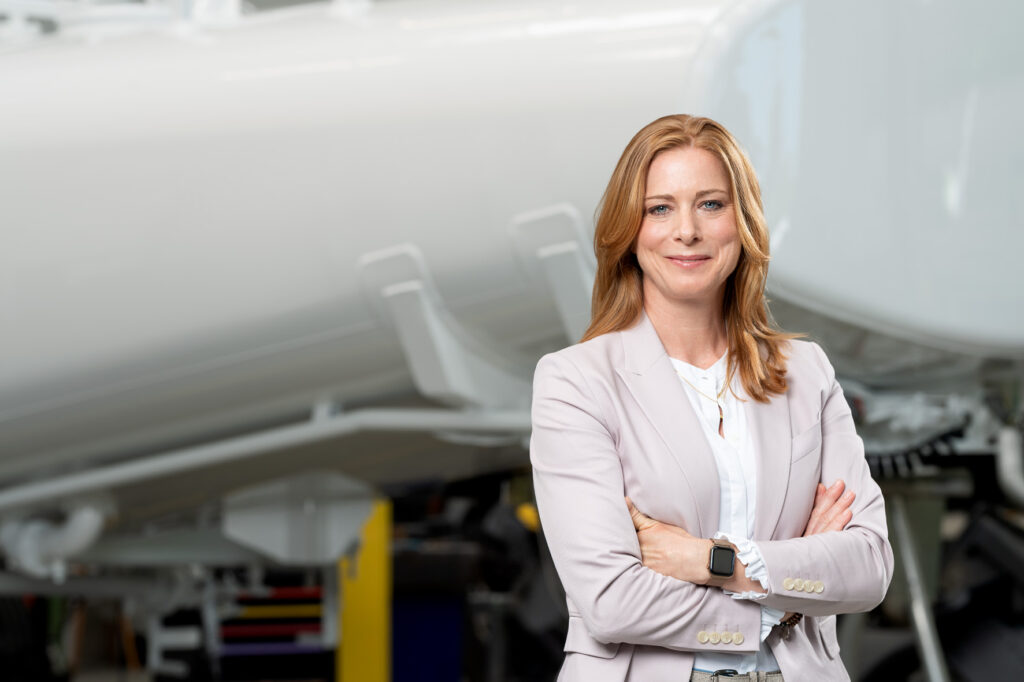Esterer is the global leader in airfield tankers and the German industry leader for road tankers. The company, based in Helsa in northern Hesse, has been developing and producing bodies for road, airfield and military refueling vehicles for 70 years.

As a pioneer in electrified refueling vehicles, Esterer has built up outstanding expertise in battery storage technology, electrification and data analysis tools. It is the only company in the world to have developed its own battery technology for refueling vehicles.
From development and technical solutions to component selection, purchasing and production, the entire refueling vehicle development process is anchored within the company to ensure maximum quality.
Esterer delivered the world’s first hybrid airfield refueling vehicle to Stuttgart Airport back in 2018
Role in the project
Goals
Esterer joined the project as a development partner in order to develop a fully electric prototype and bring it to series maturity. This was done in collaboration with Daimler Truck Holding AG. The eEconic Esterer Aviation Refueller is the world’s first 100% electric refueling vehicle with a capacity of 40,000 liters. Another unique feature is the direct energy pick-up on the chassis for refueling. Thanks to its low design, the eRefueller is ideal for use at airports and for driving under wings.
During development, Esterer benefited from its many years of experience in the safe handling of high-voltage technology, battery management, data acquisition and analysis as well as control technology.
Tasks
Selection of eEconic as chassis:
An integrated safety concept was developed in close cooperation with the high-voltage safety experts at Mercedes-Benz. This safety concept includes efficient use on the airfield and operator training. In addition, the eEconic is a mature electric truck available on the market, which is characterized by a high degree of installation space availability on the chassis and the low-profile cabin.
Development of a direct electric power take-off:
- Best energy efficiency
- A common integrated user interface (display, battery charging technology)
- Integrated safety system
- Component coordination (pump/motor/electrics/control/safety) to create a lean, smart system
- Efficiency-enhancing control of the pump output without the use of a mechanical limitation
- Technically lean system with minimal maintenance requirements
Challenges during development:
- Creating a safety concept in the regulatory and normative environment
- Gap analysis to close normative gaps and develop recommendations
- Precautions, instructions and risk analysis for the operation of electric refueling vehicles on the tarmac
- Training of users and airport staff
Scope of data analysis?
- Installation of a suitable data logger from NexumVision
- Real-time data acquisition of all refueling processes, the chassis and battery management
- Evaluation of the data for sustainability analysis and to analyze the transferability to other areas of application
Contact person
Julia Esterer
j.esterer@esterer.com
